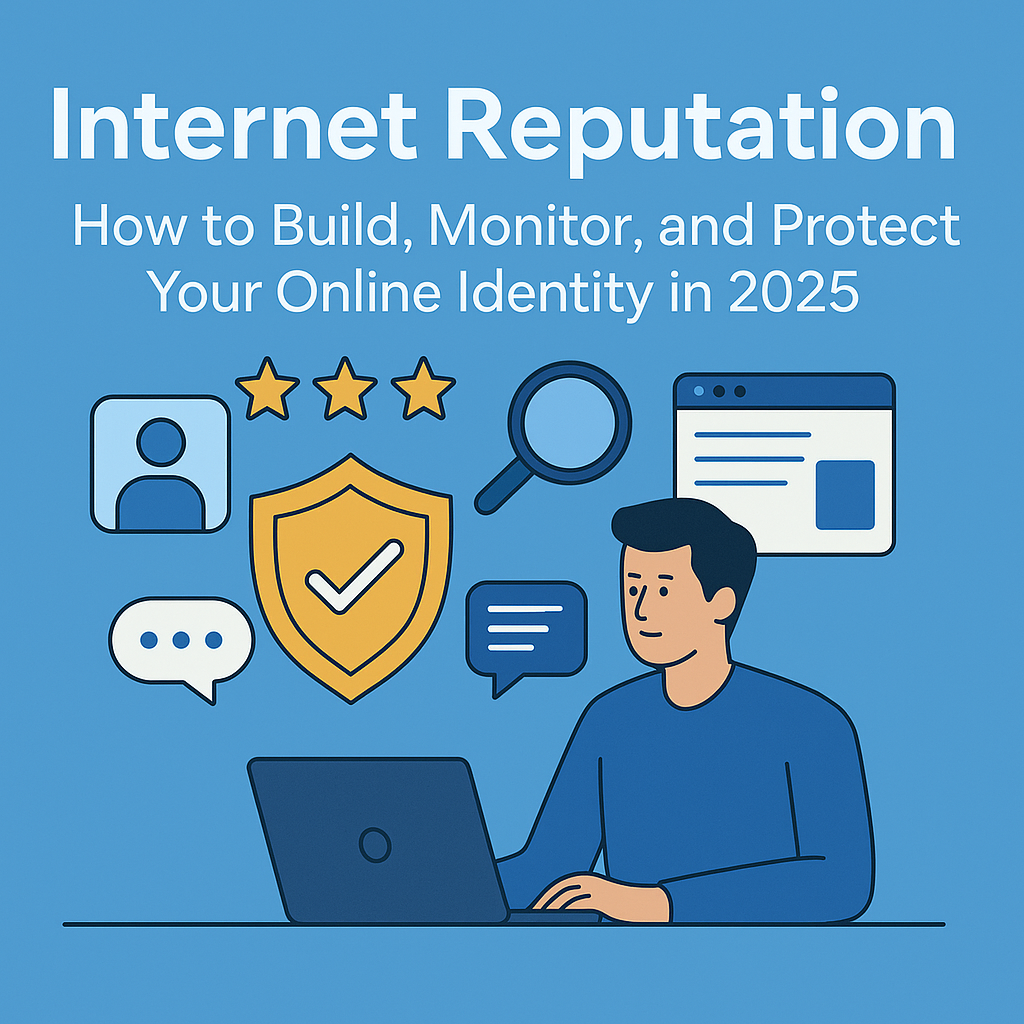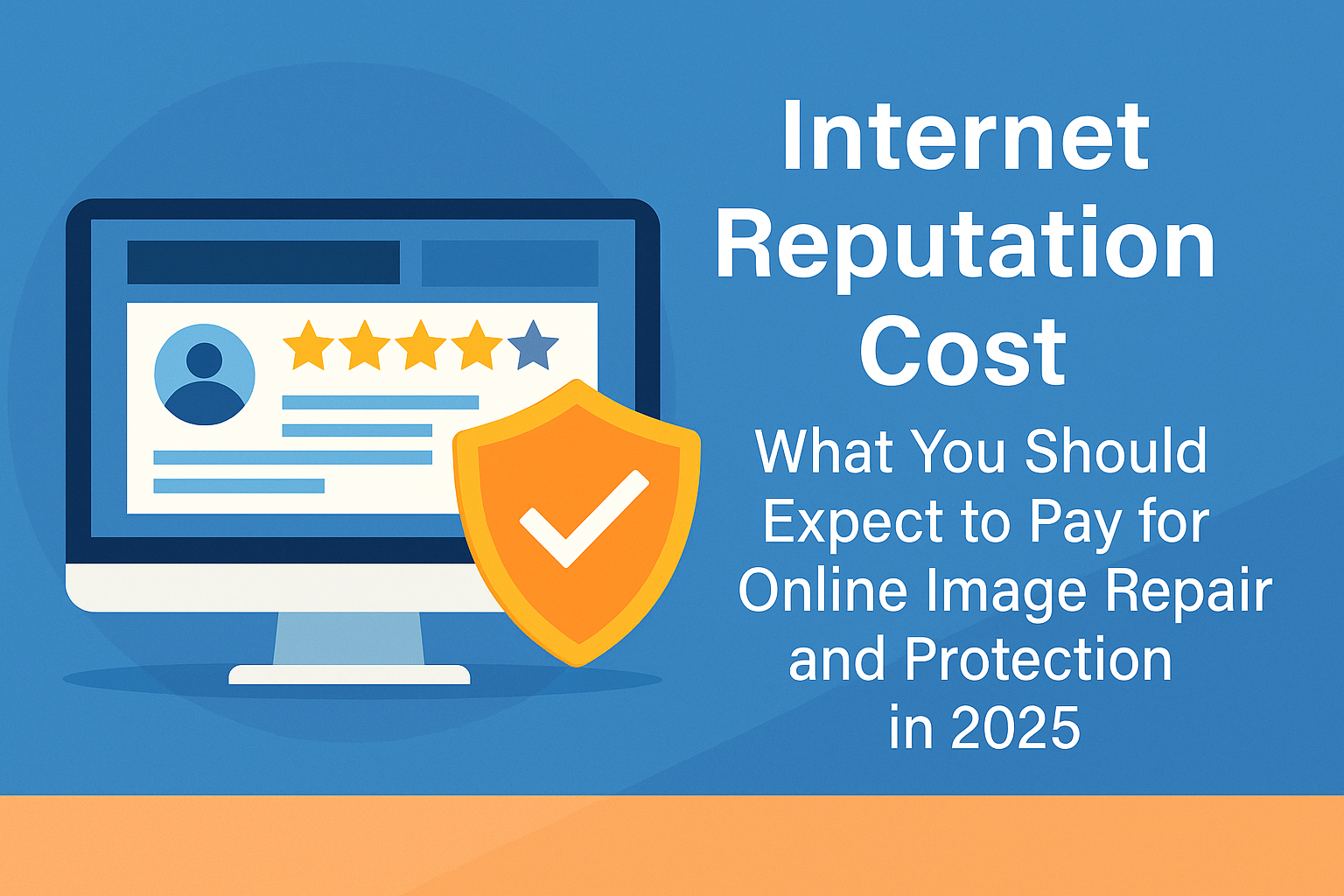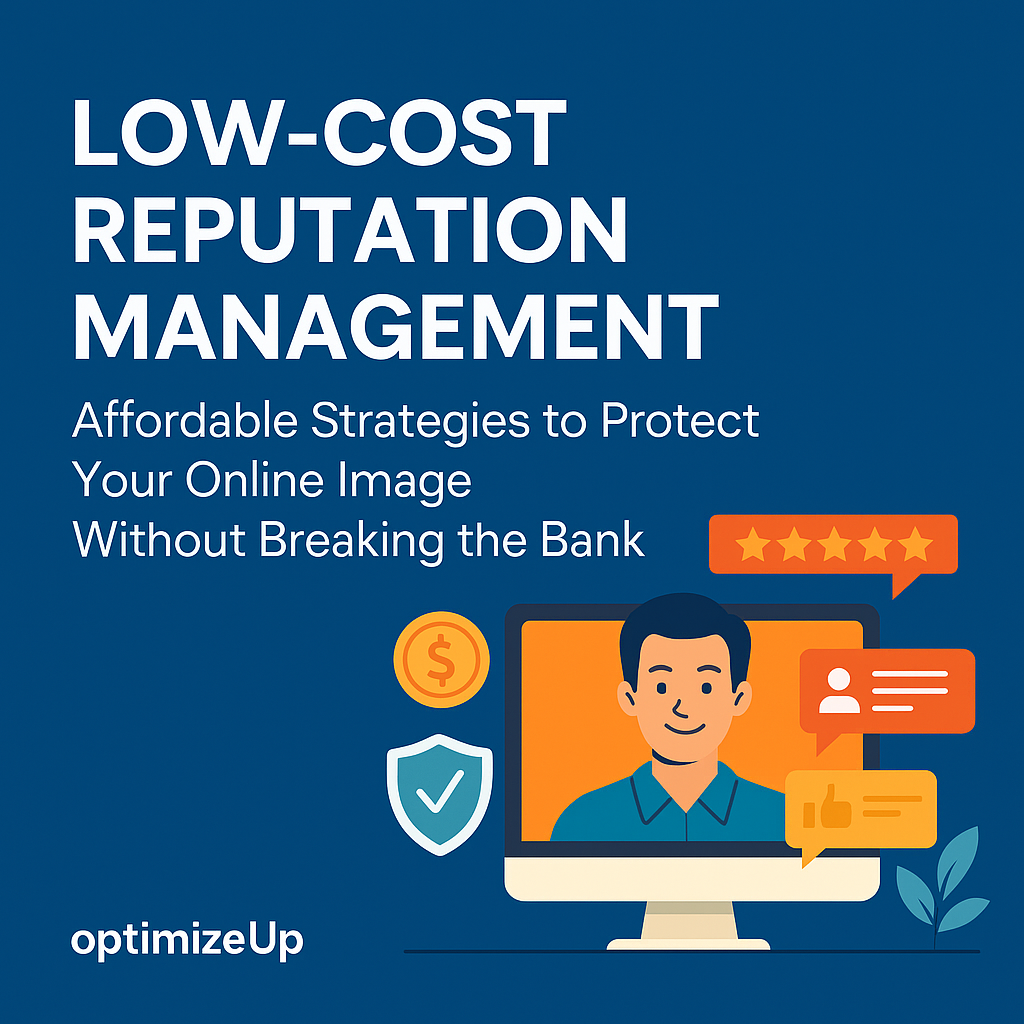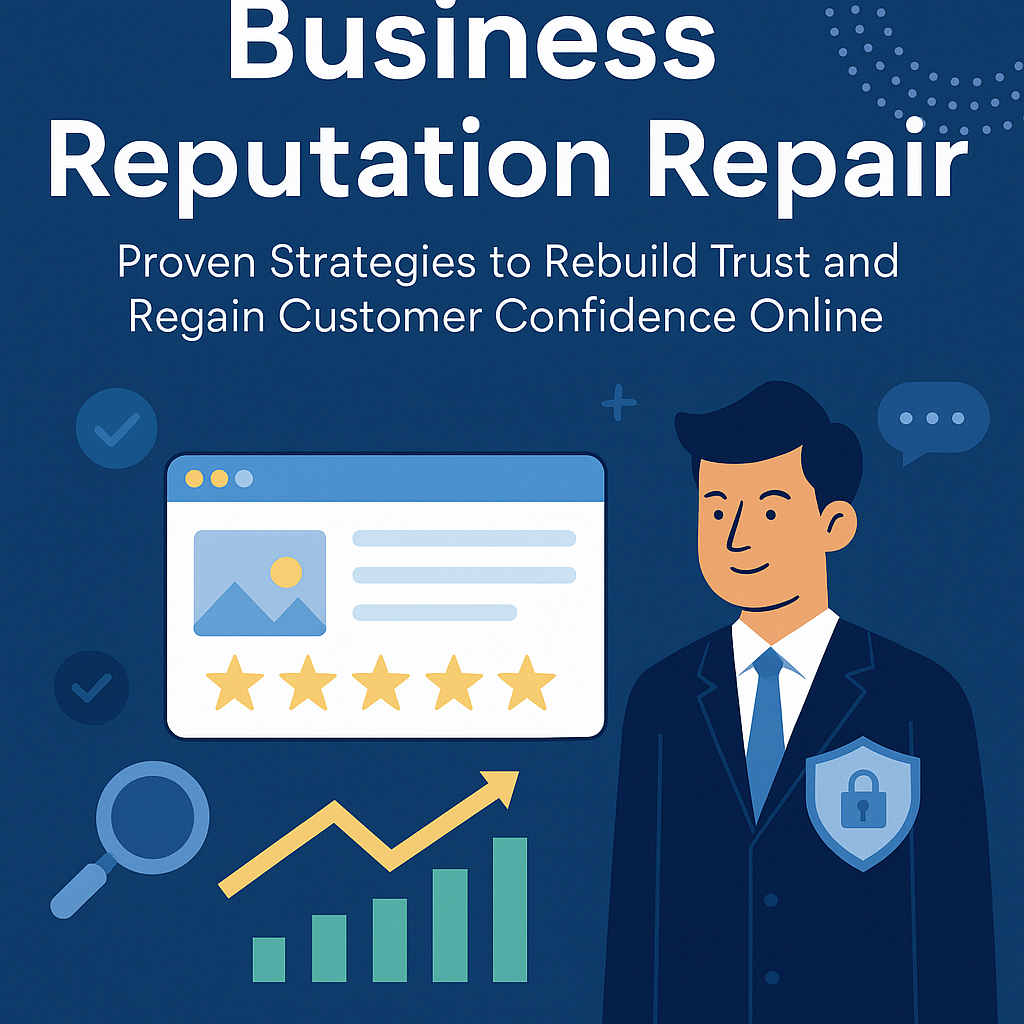Why Internet Reputation Matters in 2025
In a world where Google results often form first impressions, your internet reputation can make or break your personal and professional opportunities. Employers, clients, investors, journalists, and even romantic prospects are just a search away from learning about you. Unfortunately, even outdated or misleading content can dominate search results.
Whether you’re an entrepreneur, job seeker, public figure, or average user, curating your online identity is no longer optional—it’s essential.
Table of Contents
- What Is Internet Reputation and Why It Matters
- Top Threats to Your Internet Reputation
- Building a Strong Online Identity From Scratch
- Reputation Monitoring Tools and Alerts
- How to Protect Your Internet Reputation
- Repairing Damaged Online Reputations
- Case Study: Internet Reputation Recovery in Action
- Optimize Up: Your Partner in Online Reputation
- Frequently Asked Questions
- Works Cited
What Is Internet Reputation and Why It Matters
Your internet reputation is the collective perception people have of you based on online content—search results, social media, reviews, press mentions, and more. It reflects your credibility, reliability, and authority. Google search has become the front page of your life.
A strong reputation:
- Enhances career and business opportunities
- Increases trust in your name or brand
- Acts as a buffer against crisis events
A poor reputation, however, can limit employment, partnerships, and even social credibility.
Top Threats to Your Internet Reputation
1. Negative News Articles
Even a single negative article from years ago can remain on the first page of search results, harming your credibility.
2. Mugshots or Court Records
Public records can dominate searches and lead to biased perceptions.
3. Social Media Attacks
Defamatory posts or viral rumors spread fast and can quickly rank.
4. Review Bombing
Businesses face coordinated fake reviews or customer backlash that tarnish Google Business Profiles.
5. Outdated Information
Even irrelevant or old content can rank high due to authority domains.
Building a Strong Online Identity From Scratch
You don’t need to be a celebrity to build a powerful presence online. Here’s how to craft your story on your terms:
Claim Your Name
- Buy a domain like YourName.com
- Secure handles on platforms: LinkedIn, Instagram, YouTube, Twitter, Facebook
Publish Regularly
- Write blog posts about your expertise
- Share thought leadership on Medium, Substack, and Quora
Optimize for Search
- Use your full name in URLs, headers, titles, and alt tags
- Add location and industry-relevant keywords
Build Backlinks
- Guest post on niche blogs
- List your site in relevant directories
- Submit content to news outlets
Reputation Monitoring Tools and Alerts
Monitoring helps you act before issues escalate. Use the following:
- Google Alerts: Get notified when your name appears online
- Mention: Tracks name, brand, or URL mentions across platforms
- Brand24: Provides sentiment analysis and competitive tracking
- SEMrush: Offers backlink audits and brand monitoring tools
- Social Searcher: Monitors mentions across social networks
How to Protect Your Internet Reputation
Set Up Google Alerts for Your Name
Stay ahead by being the first to know when new content appears.
Secure Your Online Real Estate
Own the first few pages of results by dominating with personal blogs, press features, and social profiles.
Avoid Public Drama
Avoid commenting on inflammatory posts or participating in threads that may backfire.
Use Strong Privacy Settings
On Facebook, Instagram, and TikTok, limit post visibility to trusted followers.
Keep Your Profiles Clean
Avoid posting anything you wouldn’t want employers or clients to see.
Repairing Damaged Online Reputations
Even if you’ve made mistakes or been unfairly targeted, there are ways to recover.
Content Removal
- Contact the publisher for removal or updates
- Submit removal requests to Google or platforms like Facebook
- Use DMCA takedown tools for copyright violations
Content Suppression
- Create high-authority content to outrank harmful results
- Build strong backlinks to new content
- Diversify content with images, videos, PDFs, and podcasts
Press and PR Strategies
- Publish positive news on reputable outlets like Yahoo News or AP News
- Share milestones, case studies, or success stories
Reputation SEO
- Optimize all content with your full name and brand terms
- Use schema markup to guide search engines
- Structure blogs with proper headers, metadata, and alt tags
Case Study: Internet Reputation Recovery in Action
Background: A small business owner was targeted by a disgruntled competitor who spread false allegations. Their personal and brand name began to return negative results on the first page of Google.
Solution:
- Optimize Up launched a 90-day suppression campaign.
- Built and ranked 20+ high-quality properties.
- Created 6 authority backlinks to positive content.
- Submitted legal takedown requests where applicable.
Result: Within 4 months, 90% of negative links were pushed off page one. Branded search volume increased 22%.
Optimize Up: Your Partner in Online Reputation
At Optimize Up, we help:
- Professionals protect and enhance their online image
- Businesses monitor and manage review profiles
- Executives handle crisis reputation management
Whether you’re starting fresh or dealing with negative press, we tailor strategies that deliver long-term search result improvements.
📩 Book a Free Reputation Audit Now
FAQ: Internet Reputation
Not entirely, but you can control what appears on the first page of Google.
Most projects take between 3-6 months to show measurable results.
DIY is low-cost but time-consuming. Professional campaigns range from $750 to $10,000+ depending on complexity.
Yes. Over 70% of employers screen applicants by searching their name online [Forbes].
Yes, if it meets legal thresholds like defamation, privacy violations, or copyright infringement.
You may have legal remedies. Contact an attorney and a reputation management expert.
In most cases, no. It can backfire or cause ranking boosts for the negative page.
Absolutely. Tools like Jasper, ChatGPT, and Writesonic can create optimized content faster and support SEO campaigns.
Not intentionally. But negative articles often get clicks and engagement, which helps them rank.
Yes, if you’re notable enough. Wikipedia and Wikidata entities can strengthen Knowledge Panels and suppress harmful results.





